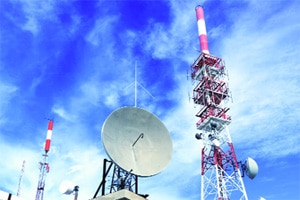Mobile operators upset that the forthcoming auctions would only offer 5 MHz spectrum in the 2100 MHz (3G) band have reason to be further disappointed. The department of telecommunications will in all likelihood notify the spectrum trading and sharing guidelines only after the auction of the remaining 15 MHz of 3G spectrum it has got from the defence ministry is over. This means that the wait could be as long as six months to a year.
Earlier the expectation was that these guidelines would be notified once the February auctions were over. Sources in the DoT told FE that the reason for further delaying the notification of these guidelines is that they may depress the prices the government expects to get when the 15 MHz 3G spectrum is put for bids. A similar reasoning has delayed the finalisation of these guidelines thus far — because the DoT feared the move would depress prices in the February auctions of 800, 900 and 1800 MHz bands.
The industry has been looking for the finalisation of the sharing and trading guidelines so that spectrum held by operators can be optimally and efficiently utilised. For instance, today there is no operator with a pan-India spectrum for offering 3G services but there are operators in some circles who have the spectrum but not enough subscribers. The notification of the guidelines would have helped such operators to trade their spectrum with the ones who need it.
Romal Shetty, head of telecommunications at KPMG, said if spectrum sharing and trading guidelines are delayed, it will only result in higher outgo by way of capital expenditure as telcos would not be able to plan on how much of 3G spectrum they would need later for their operations.
“Pricing and capex will go up for telcos. Had the government come out with guidelines on trading and sharing of spectrum, they would have known how much of spectrum they require.
Spectrum sharing basically affects capex planning perspective. If you don’t know how much is available after one year you lose on planning. There is no clarity in guideline else telcos would have managed their costs,” he said.
Satya N Gupta, a former Telecom Regulatory Authority of India principal adviser and now secretary general, Next Generation Network Forum, says if spectrum sharing and trading guidelines are delayed, there will not be efficient utilisation of spectrum and it will also delay the mergers and acquisitions expected in the telecom sector.
Initially, telecom minister Ravi Shankar Prasad had said that sharing and trading guidelines would be finalised by the end of calendar 2014.
However, since auctions for 800, 900 and 1800 MHz bands and a small block of 2100 MHz band were planned in February, the DoT postponed finalisation and notification of the guidelines on the grounds it would depress bid prices.
Asked by reporters recently as to when these guidelines would be finalised, Prasad had declined to give a time frame, stating that due processes needed to be observed like the committee examining it and if need be consulting with Trai.
Trai’s recommendations on sharing and trading is before the committee constituted by the DoT. As per the process, if the committee differs on any aspect of it, it would have to make a back reference to Trai, urging it to reconsider its opinion. Trai will then within 15 days revert to the DoT, after which the latter is free to go ahead with its views irrespective of the final stand taken by the regulator.
Industry sources said the delay is purely strategic (meaning delaying it so that auctions are over) because there isn’t any such work involved in finalisation of the guidelines that takes such a long time. For perspective, the guidelines of spectrum trading were submitted by Trai in January 2014 and those for sharing in July the same year.
For trading in spectrum, the regulator has recommended that only those operators be allowed to trade who have purchased spectrum through auctions in 2010 and later. Further, trading will have to be at the service area level and not a portion of it. Spectrum in the 2G, 3G, 4G (BWA) and CDMA bands should be allowed to be traded.
For entering in trading agreement, telecom operators will not require prior permission from government but the company will have to inform the licence issuing authority (DoT) six weeks before the effective date of trading spectrum. It can be done only between two operators in a given circle
Similarly, for spectrum sharing, Trai had said it can be done in all the bands — 800, 900, 1,800, 2100, 2300 and 2500 MHz. However, operators need to have spectrum in these bands in the given circle.

